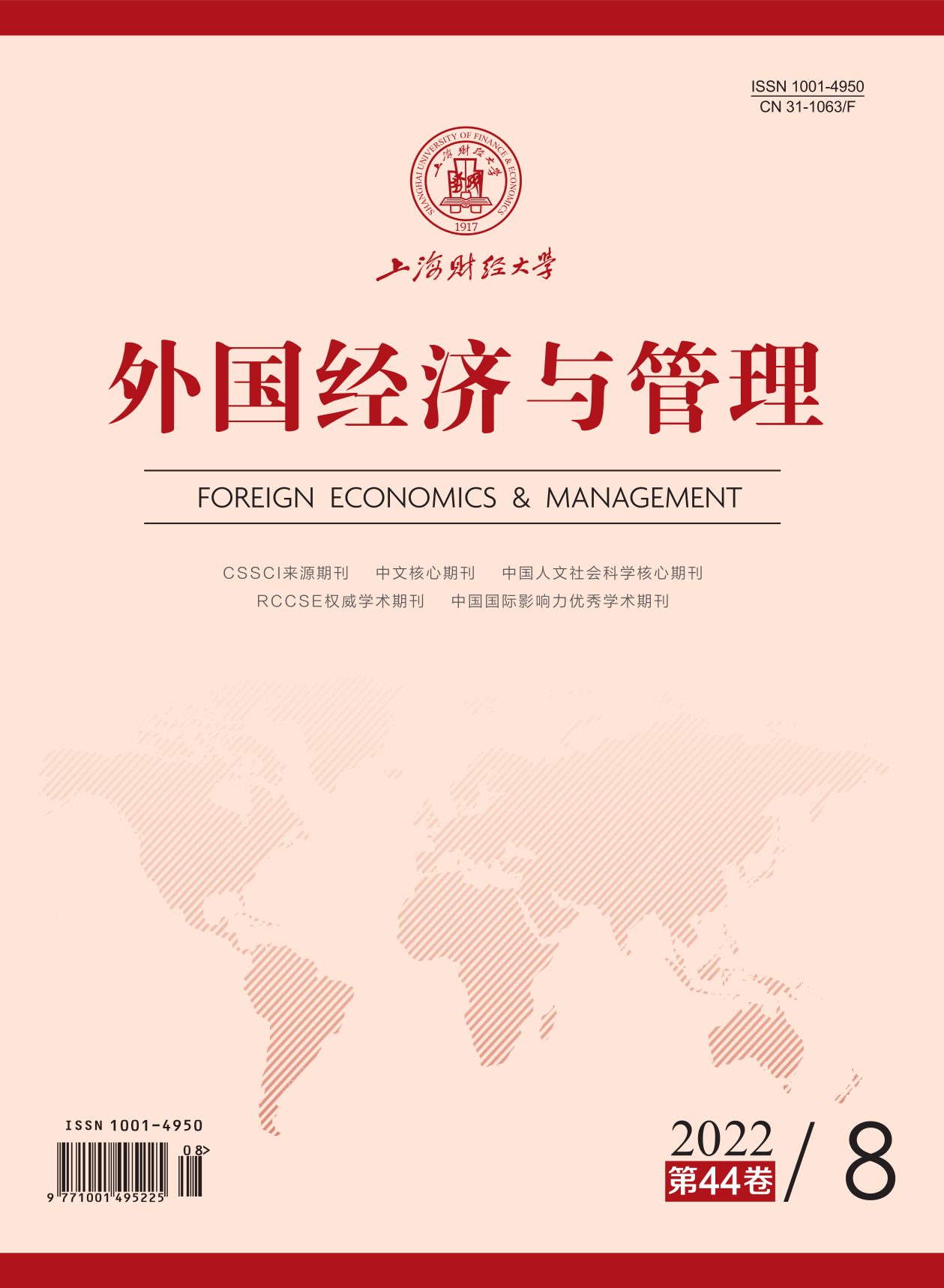权力距离作为霍夫斯坦德提出的首个国家文化维度,受到社会学、心理学、组织行为学和消费者行为学等领域学者的广泛关注。随着研究的不断深入,学者们发现在一个地区之内,不同个体关于权力距离的观点也常存在差异。在这一背景下,另一个新的学术概念“权力距离信念”出现,为学术界从个体文化价值观层面理解营销实践和消费者行为提供了全新的视角。权力距离信念特指个体对社会权力分配不平等的容忍程度,对消费者购买决策的不同阶段和亲社会行为等存在多重影响。近年来权力距离信念受到了营销学术界越来越多的关注,而学术界对其概念内涵和研究成果仍缺乏系统的梳理。鉴于此,本文系统回顾和梳理了权力距离信念在营销领域的研究成果,阐明了权力距离信念的概念内涵,归纳了权力距离信念的操控方法和测量方法,重点回溯了权力距离信念对消费者行为的影响及理论基础,并据此对未来研究方向进行了展望,旨在为未来的研究指引方向,并为企业制定科学精准的营销策略提供理论依据。
权力距离信念如何影响消费者行为:研究述评与展望
摘要
参考文献
1 曹倩, 于斌, 王熹. 权力距离感对“生命礼物”赠予的影响[J]. 管理科学,2018a, 31(4): 135-147. DOI:10.3969/j.issn.1672-0334.2018.04.010
4 崔宏静, 徐尉, 赵太阳, 等. 自我认同威胁对消费者地位产品选择的影响研究——基于权力距离信念的调节效应和地位需求的中介效应[J]. 南开管理评论,2018, 21(6): 210-220. DOI:10.3969/j.issn.1008-3448.2018.06.019
11 韦慧民, 龙立荣. 认知与情感信任、权力距离感和制度控制对领导授权行为的影响研究[J]. 管理工程学报,2011, 25(1): 10-17. DOI:10.3969/j.issn.1004-6062.2011.01.002
15 仲理峰, 孟杰, 高蕾. 道德领导对员工创新绩效的影响: 社会交换的中介作用和权力距离取向的调节作用[J]. 管理世界,2019, 35(5): 149-160. DOI:10.3969/j.issn.1002-5502.2019.05.012
16 周建涛, 廖建桥. 权力距离导向与员工建言: 组织地位感知的影响[J]. 管理科学,2012, 25(1): 35-44. DOI:10.3969/j.issn.1672-0334.2012.01.004
18 Earley P C, Erez M. The transplanted executive: Why you need to understand how workers in other countries see the world differently[M]. New York: Oxford University Press, 1997.
19 Farh J L, Hackett R D, Liang J. Individual-level cultural values as moderators of perceived organizational support-employee outcome relationships in China: Comparing the effects of power distance and traditionality[J]. Academy of Management Journal,2007, 50(3): 715-729. DOI:10.5465/amj.2007.25530866
20 Festinger L. A theory of cognitive dissonance (Vol. 2)[M]. Stanford: Stanford University Press, 1957.
21 Gao B J, Li X G, Liu S, et al. How power distance affects online hotel ratings: The positive moderating roles of hotel chain and reviewers’ travel experience[J]. Tourism Management,2018, 65: 176-186. DOI:10.1016/j.tourman.2017.10.007
22 Gao H C, Winterich K P, Zhang Y L. All that glitters is not gold: How others’ status influences the effect of power distance belief on status consumption[J]. Journal of Consumer Research,2016, 43(2): 265-281. DOI:10.1093/jcr/ucw015
24 Hofstede G. Culture’s consequences: International differences in work-related values[M]. London: Sage Publications, 1984.
25 Hofstede G. Culture’s consequences: Comparing values, behaviors, institutions, and organizations across nations[M]. Thousand Oaks: Sage Publications, 2001.
26 Jain S S, Jain S P. Power distance belief and preference for transparency[J]. Journal of Business Research,2018, 89: 135-142. DOI:10.1016/j.jbusres.2018.04.016
27 Jost J T, Banaji M R. The role of stereotyping in system-justification and the production of false consciousness[J]. British Journal of Social Psychology,1994, 33(1): 1-27. DOI:10.1111/j.2044-8309.1994.tb01008.x
28 Keltner D, Gruenfeld D H, Anderson C. Power, approach, and inhibition[J]. Psychological Review,2003, 110(2): 265-284. DOI:10.1037/0033-295X.110.2.265
29 Kim Y, Zhang Y L. The impact of power-distance belief on consumers’ preference for status brands[J]. Journal of Global Marketing,2014, 27(1): 13-29. DOI:10.1080/08911762.2013.844290
31 Lalwani A K, Forcum L. Does a dollar get you a dollar’s worth of merchandise? The impact of power distance belief on price-quality judgments[J]. Journal of Consumer Research,2016, 43(2): 317-333. DOI:10.1093/jcr/ucw019
32 Landau M J, Kay A C, Whitson J A. Compensatory control and the appeal of a structured world[J]. Psychological Bulletin,2015, 141(3): 694-722. DOI:10.1037/a0038703
33 Lee H, Lalwani A K, Wang J J. Price no object! The impact of power distance belief on consumers’ price sensitivity[J]. Journal of Marketing,2020, 84(6): 113-129. DOI:10.1177/0022242920929718
34 Luo A Q, Mattila A S. Discrete emotional responses and face-to-face complaining: The joint effect of service failure type and culture[J]. International Journal of Hospitality Management,2020, 90: 102613. DOI:10.1016/j.ijhm.2020.102613
35 Neuliep J W. Intercultural communication: A contextual approach[M]. Thousand Oaks: Sage, 2006.
36 Paharia N, Swaminathan V. Who is wary of user design? The role of power-distance beliefs in preference for user-designed products[J]. Journal of Marketing,2019, 83(3): 91-107. DOI:10.1177/0022242919830412
37 Pezzuti T, Leonhardt J M, Warren C. Certainty in language increases consumer engagement on social media[J]. Journal of Interactive Marketing,2021, 53: 32-46. DOI:10.1016/j.intmar.2020.06.005
38 Rucker D D, Galinsky A D. Desire to acquire: Powerlessness and compensatory consumption[J]. Journal of Consumer Research,2008, 35(2): 257-267. DOI:10.1086/588569
39 Song H, Byon K K. Moderating effect of the power-distance belief on the relationship between employees’ service failures and customers’ behavioral outcomes in the sport service industry[J]. International Journal of Environmental Research and Public Health,2021, 18(5): 2488. DOI:10.3390/ijerph18052488
40 Song X B, Jung J, Zhang Y L. Consumers’ preference for user-designed versus designer-designed products: The moderating role of power distance belief[J]. Journal of Marketing Research,2021, 58(1): 163-181. DOI:10.1177/0022243720972702
41 Strizhakova Y, Coulter R. Consumer cultural identity: Local and global cultural identities and measurement implications[J]. International Marketing Review,2019, 36(5): 610-627. DOI:10.1108/IMR-11-2018-0320
42 Tu L L, Kwon J, Gao H C. Heart or mind? The impact of power distance belief on the persuasiveness of cognitive versus affective appeals in education marketing messages[J]. Journal of Marketing Research,2022, 59(1): 173-190. DOI:10.1177/00222437211002196
43 Wang J J, Lalwani A K. The distinct influence of power distance perception and power distance values on customer satisfaction in response to loyalty programs[J]. International Journal of Research in Marketing,2019, 36(4): 580-596. DOI:10.1016/j.ijresmar.2018.11.006
44 Wang J J, Torelli C J, Lalwani A K. The interactive effect of power distance belief and consumers’ status on preference for national (vs. private-label) brands[J]. Journal of Business Research,2020, 107: 1-12. DOI:10.1016/j.jbusres.2019.10.001
45 Wang X H, Wang X Y, Fang X, et al. Power distance belief and brand personality evaluations[J]. Journal of Business Research,2018, 84: 89-99. DOI:10.1016/j.jbusres.2017.11.011
46 Wang Z, Mao H F, Li Y J, et al. Smile big or not? Effects of smile intensity on perceptions of warmth and competence[J]. Journal of Consumer Research,2017, 43(5): 787-805. DOI:10.1093/jcr/ucw062
47 Wicklund R A, Gollwitzer P M. Symbolic self-completion, attempted influence, and self-deprecation[J]. Basic and Applied Social Psychology,1981, 2(2): 89-114. DOI:10.1207/s15324834basp0202_2
48 Winterich K P, Gangwar M, Grewal R. When celebrities count: Power distance beliefs and celebrity endorsements[J]. Journal of Marketing,2018, 82(3): 70-86. DOI:10.1509/jm.16.0169
49 Winterich K P, Zhang Y L. Accepting inequality deters responsibility: How power distance decreases charitable behavior[J]. Journal of Consumer Research,2014, 41(2): 274-293. DOI:10.1086/675927
50 Xu H Y, Bolton L E, Winterich K P. How do consumers react to company moral transgressions? The role of power distance belief and empathy for victims[J]. Journal of Consumer Research,2021, 48(1): 77-101. DOI:10.1093/jcr/ucaa067
51 Yan L, Keh H T, Chen J M. Assimilating and differentiating: The curvilinear effect of social class on green consumption[J]. Journal of Consumer Research,2021a, 47(6): 914-936. DOI:10.1093/jcr/ucaa041
54 Zhang Y L, Shrum L J. The influence of self-construal on impulsive consumption[J]. Journal of Consumer Research,2009, 35(5): 838-850. DOI:10.1086/593687
55 Zhang Y L, Winterich K P, Mittal V. Power distance belief and impulsive buying[J]. Journal of Marketing Research,2010, 47(5): 945-954. DOI:10.1509/jmkr.47.5.945
引用本文
樊亚凤, 张侠丹. 权力距离信念如何影响消费者行为:研究述评与展望[J]. 外国经济与管理, 2022, 44(8): 138-152.
导出参考文献,格式为:
上一篇:基于复杂系统视角的组织研究





 8239
8239  10083
10083

